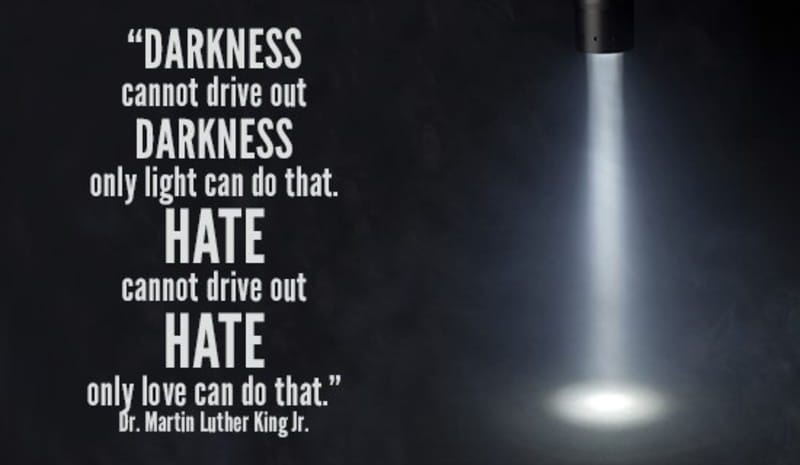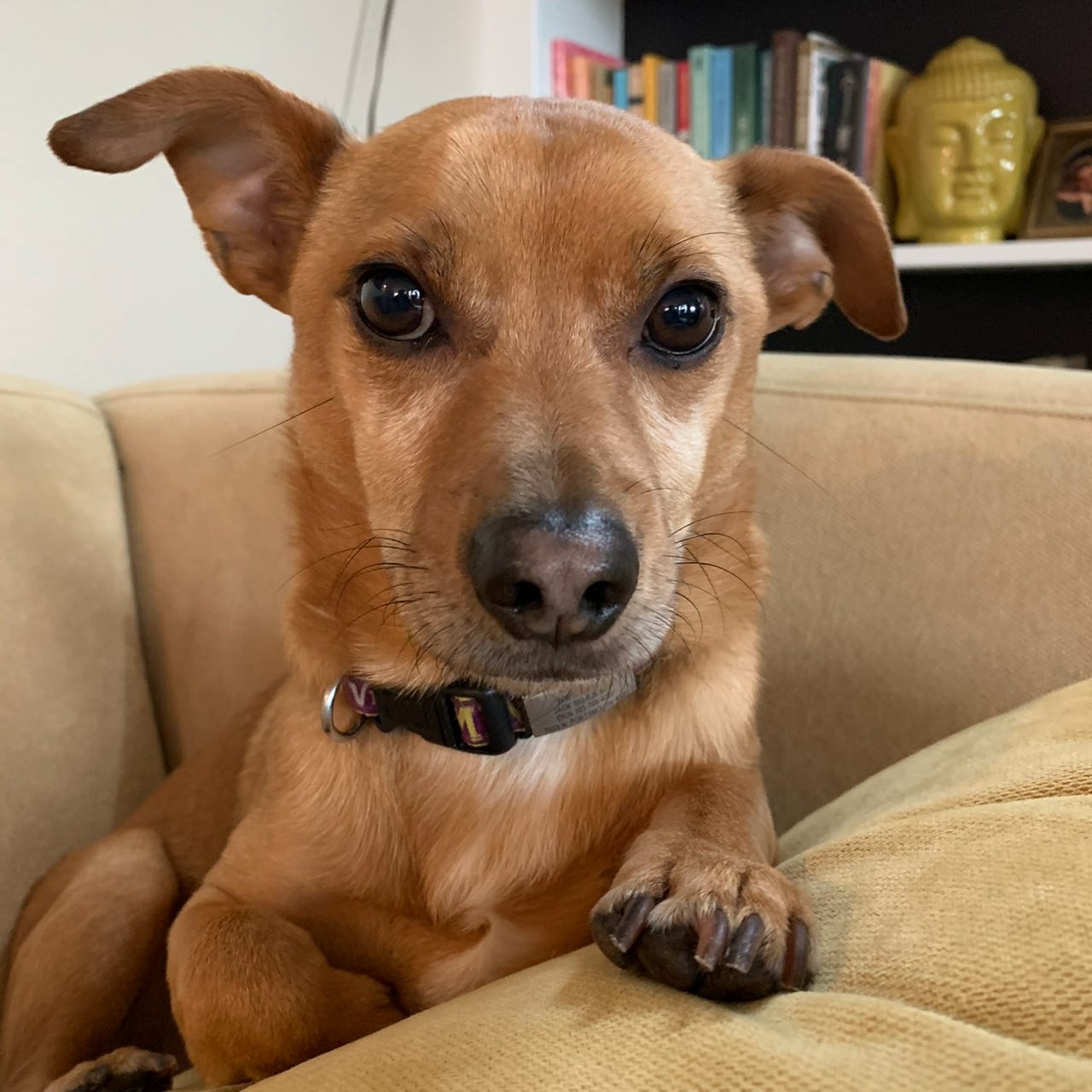If We Can Learn To Hate, Can't We Also Learn To Love?
Why is it so much easier to teach children to hate?
I was watching MSNBC this afternoon as Nicole Wallace was leading a discussion of the mass shooting at Club Q in Colorado Springs, CO, over the weekend. It was an enlightening conversation…and then she asked her panel a deceptively simple question that stopped me in my tracks:
“How do you stop hate?”
Those five words stopped me in my tracks; perhaps I hadn’t considered the question in such stark terms. When you get down to horrific incidents like what happened at Club Q or Pulse Nightclub in Orlando, FL, or numerous synagogues, mosques, and churches, what’s the throughline? What’s the one thing all these horrific tragedies have in common? Certainly, guns provide the most obvious answer. That the shooters are White males is another. But there’s an elephant in the room that often gets overlooked.
Hate.
What drives someone to undertake such horrific, unthinkable, murderous rampages? It’s the hatred they have in their heart for people who, in their minds, are guilty of committing mortal sins and are abominations before God.
At least that’s my assumption. I’m neither a psychotherapist nor a student of sociopathic/psychopathic behavior. I have to draw conclusions based on my experience and education, but I believe I’m at least in the ballpark.
But the hate. Where does the hate come from? We don’t come out of the womb hating. We aren’t naturally prone to “Otherizing” those who look, think, believe, act, live, and/or love differently from us. And if hate isn’t innate, it must be a learned behavior, right?
If we can learn to hate, wouldn’t it stand to reason that we can learn to love? And if hating and loving are learned behaviors, how do we learn them? Well, from the same folks from whom we learn so much about what makes us who we are- our parents. Of course, they learned what makes them who they are from their parents…and so on and so, ad infinitum, ad nauseam.
So if the learning of hatred- and its cousin, prejudice- are cyclical, how do we escape that cycle?
I can’t speak to that from personal experience, because I was fortunate enough to grow up in a family that didn’t teach hate. Even with all the difficulties I had with my father, he and my mother taught me that people are people and that I’m no better or worse than anyone else. Even though I grew up in a place where diversity meant Lutheran or Catholic, they taught me that neither the color of one’s skin nor any other difference gave me cause to claim superiority.
I’m beyond grateful for those lessons because, in my travels around the world, I’ve interacted with people from all walks of life. Seeing them for who they are and not what they are has made my experiences richer and more meaningful.
My motto has always been that I’ll never hate someone until I get to know them. Invariably, I may take an active dislike to them by the time I get to know someone, but I can’t hate them. Every person I come across has at least one positive quality I can find, so I try to focus on finding that quality in someone I don’t like. That can be difficult at times, but I can almost always find something good in someone.
My experience has been that I can’t hate people I know. And perhaps that’s the key. It’s easy to hate and dehumanize someone you don’t know because you have nothing invested in them. They become a symbol, a commodity, something you can invest negative energy in. When their humanity holds no meaning, they become a thing that can be preserved just as easily as it can be destroyed. And its destruction is a matter of little or no concern.
People hate the LGBTQ community, but how many of those people know anyone who’s LGBTQ? When you put a face on a group, they become more human, and it’s easier to understand that their sexuality or gender identity is only a small part of who they are. Even someone who’s LGBTQ has dreams and aspirations. They have jobs, mortgages, and bills to pay. They worry about their parents aging. They have hobbies and buckets lists.
These are all things “normal” people do- people like you and me, and yet no one thinks of us as “heterosexual,” assuming that’s how my gentle reader idenitifies. We’re just people. We’re all people; we may have different labels- but those labels don’t define us. And they certainly don’t define our worth or status relative to other demographic groups.
So how do we stop hate? How do we stop something so cyclical, that’s handed down from ignorant generation to ignorant generation because that’s what they know and few think to question it? It’s accepted as Gospel because that’s how it’s always been. Until enough people stand up and question it, it will continue to be that way.
Unfortunately, the minds being poisoned are young, impressionable, and receptive to what adults they know and love teach them. Moreover, they may not possess the intellectual and moral fortitude necessary to question what they’re being taught at a young age.
Schools can’t be expected to be much help, not when you look at what’s happening at school board meetings these days. Even here in the Portland area, people scream about schools “indoctrinating” students instead of educating them (uh, education IS indoctrination). But, unfortunately, these folks never seem to elucidate their specific concerns. Instead, they speak of Critical Race Theory (CRT), which isn’t taught below the graduate school level, as if they’re convinced their children are being force-fed CRT.
It seems some parents want their children to be taught a sanitized version of history and that only White Conservative Christian heterosexual ideology is acceptable. Anything other than a White-centric, sanitized version of history is considered biased and teaches children to hate their Whiteness.
The most significant part of the problem is that many Americans have been conditioned to become offended at the slightest hint that their White Conservative Christian heterosexual ideology isn’t being treated as superior. Anything that colors outside these lines is treated as incendiary and propagandizing their precious offspring.
In reality, schools may only be trying to teach children that people come in many colors, nationalities, sexualities, religions, beliefs, and other distinguishing factors. That isn’t to say anyone is good, better, or best, only that America is a melting pot in which we all play a part. Sadly, too many parents aren’t willing or equipped to hear that message; what they hear is that they’re being discriminated against.
Unfortunately for them, America is not the property and playground of the White race. If America “belongs” to anyone, it belongs to all of us, regardless of who or what we may be.
So how do we stop hate? Well, we could stop with the histrionics that seem to erupt whenever anyone suggests that White doesn’t necessarily make right. We shouldn’t be limited to seeing America, or the world, through a Caucasian lens. That arrogance hasn’t served us well throughout our relatively short history and won’t do us any good as we head into an increasingly globalized future.
For now, though, stopping hate starts with each of us. Instead of trying to save the world, let’s try to better people. Let’s try to be better to those we come into contact with.
My wife, Erin, frequently reminds me to always assume good intentions of others. When you proceed from that simple assumption, you’d be surprised how many potential conflicts can be avoided.
We can stop hate, but it’s not going to stop overnight. If we don’t start, however, nothing will change. So how about we be the change we want to see in the world?






